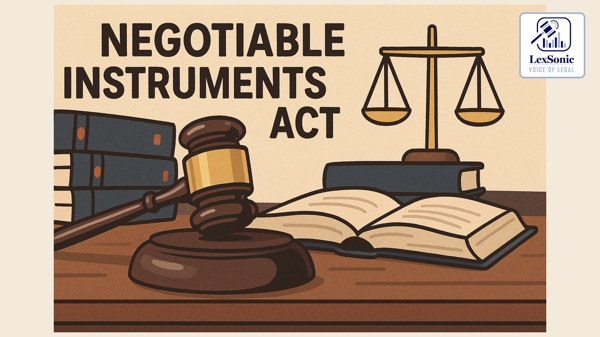The issue in Muskan Enterprises & Another Vs State of Punjab & Another surrounding the interpretation of Section 148 of the Negotiable Instruments Act, 1881 (N.I. Act) and its impact on the appellate process has recently garnered attention in the judicial realm. The Supreme Court, in its decision dated 20th January 2025, has provided significant clarity on whether an Appellate Court is bound to impose the deposit condition under Section 148 of the N.I. Act when hearing an appeal against conviction under Section 138 of the N.I. Act. The decision also addresses the procedural question of whether a second petition under Section 482 of the Criminal Procedure Code (Cr. PC) can be filed after the withdrawal of a prior petition without leave.
Case Background:
The appellants in this case had been convicted under Section 138 of the N.I. Act by a Judicial Magistrate, 1st Class, in Amloh, District Fatehgarh, on 15th September 2022. The court had sentenced them to two years of rigorous imprisonment and directed them to pay a compensation amount of Rs. 74,00,000, double the cheque amount. This judgment was appealed before the Sessions Court, which, while admitting the appeal on 17th October 2022, suspended the sentence and granted bail to the second appellant, who was the proprietor of the first appellant.
However, the Sessions Court imposed a condition requiring the appellants to deposit 20% of the compensation amount within 60 days. The complainant was given liberty to withdraw this deposit, with an undertaking to return it should the appellants succeed in the appeal. The appellants questioned the imposition of this condition in a petition under Section 482 of the Cr. PC before the High Court, but the petition was dismissed as withdrawn after the appellants conceded the argument due to binding precedents.
Shortly thereafter, a fresh decision by the Supreme Court in the case of Jamboo Bhandari v. Madhya Pradesh State Industrial Development Corporation Ltd. (2023) clarified that while the Appellate Court generally has discretion to impose the 20% deposit condition, it may choose not to do so in exceptional circumstances. Relying on this new ruling, the appellants filed a second petition before the High Court, which was dismissed on the grounds that the prior petition had been withdrawn without liberty to reapply.
Key Legal Issue:
The critical question before the Supreme Court was whether the High Court was justified in dismissing the second petition solely because it was filed after the earlier petition had been withdrawn without leave to reapply. Additionally, the Court had to address whether the Appellate Court has absolute discretion to waive the 20% deposit condition under Section 148 of the N.I. Act, based on the principles laid down in the Jamboo Bhandari case.
Supreme Court’s Ruling:
The Supreme Court unequivocally held that the High Court was wrong in dismissing the subsequent petition. It emphasized that the procedural laws governing criminal cases do not apply the same principles as civil law, particularly in the context of res judicata. Unlike civil cases where withdrawal without leave to reapply may prevent a subsequent petition, criminal law allows for successive petitions under Section 482 of the Cr. PC, especially when there has been a change in law or circumstances.
The Court relied on earlier decisions, such as S.M.S. Pharmaceuticals Ltd. v. Neeta Bhalla (2007), where it was established that a second petition under Section 482 can be entertained if it is based on a change in facts or law. Furthermore, the Court agreed with the Jamboo Bhandari ruling, which interpreted Section 148 of the N.I. Act as granting the Appellate Court discretion to waive the 20% deposit requirement in exceptional cases. It stated that while the Appellate Court may normally impose such a deposit, it is not mandatory, and the court may choose to waive it if sufficient reasons are recorded.
Interpretation of Section 148 of the N.I. Act:
In its detailed analysis of Section 148, the Supreme Court clarified the usage of the terms "may" and "shall." While "may" provides the Appellate Court with the discretion to order a deposit, "shall" imposes a mandatory minimum requirement, meaning the deposit must be at least 20% of the compensation or fine awarded by the trial court. The Court emphasized that the Appellate Court has the discretion to waive the deposit requirement entirely if it finds the case to be exceptional, which could include scenarios where the conviction appears to be fundamentally flawed.
The Court outlined that the Appellate Court may form an opinion that the conviction and sentence imposed by the trial court are erroneous, and in such cases, the requirement to deposit the 20% compensation could be deemed unnecessarily burdensome. The Court, therefore, concluded that the Appellate Court should exercise its discretion carefully and consider the facts of the case when determining whether a deposit is required.
Conclusion:
The Supreme Court's ruling in this case underscores the importance of interpreting procedural laws in light of the changing legal landscape. By reaffirming the Appellate Court’s discretion under Section 148 of the N.I. Act and emphasizing the maintainability of successive petitions under Section 482 of the Cr. PC, the Court has provided a significant clarification that could impact future cases involving appeals under the N.I. Act.
The appeal has been allowed, and the matter has been remitted to the Sessions Court for reconsideration of the deposit issue in accordance with the law as clarified in Jamboo Bhandari. This decision ensures that the Appellate Court has the flexibility to dispense with the deposit requirement in exceptional circumstances, ultimately serving the ends of justice.
Section 3, NEGOTIABLE INSTRUMENTS (AMENDMENT) ACT - 2018
Negotiable Instruments Act, 1881
Section 482., Code of Criminal Procedure - 1973
Code of Criminal Procedure, 1973

